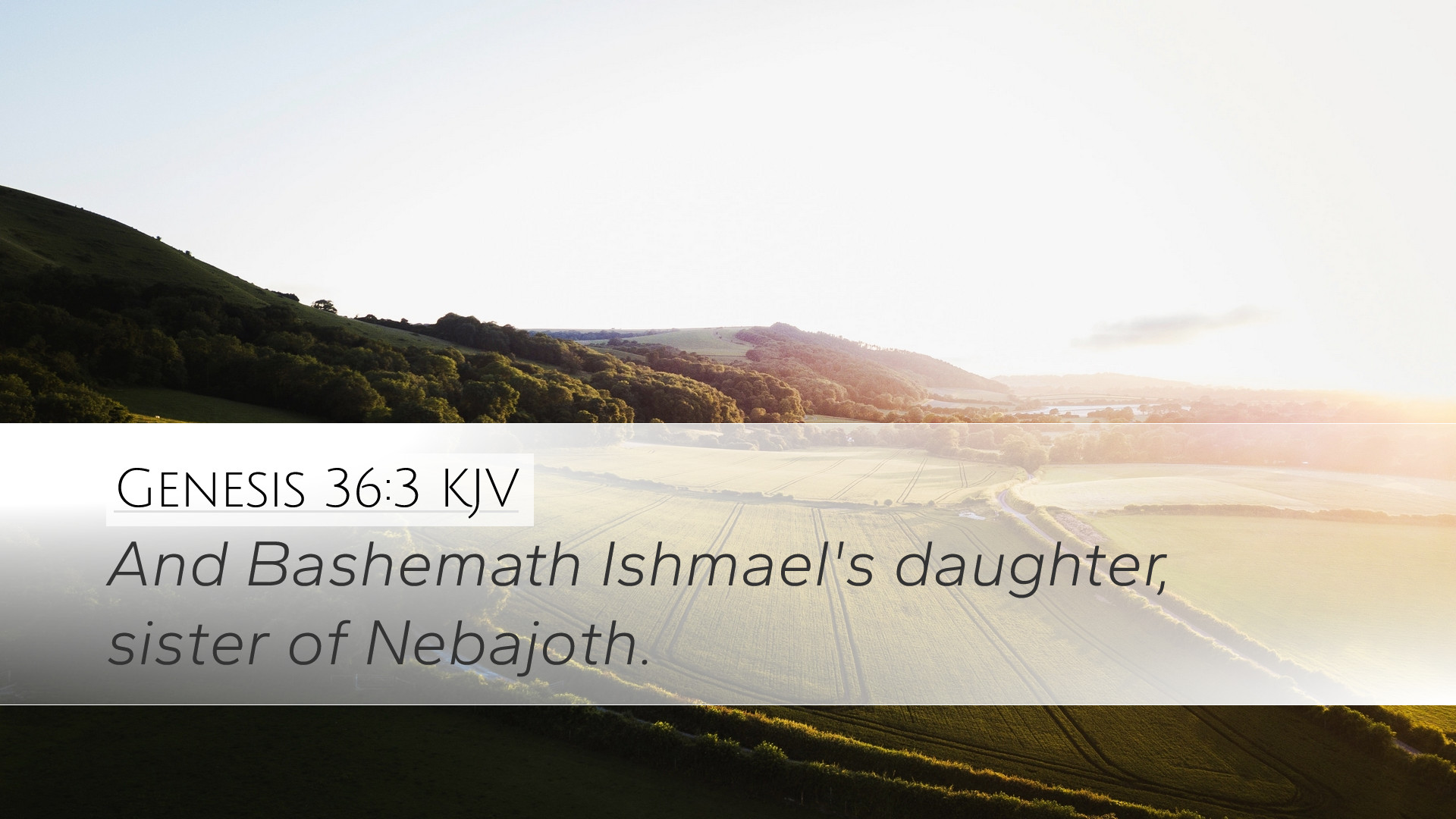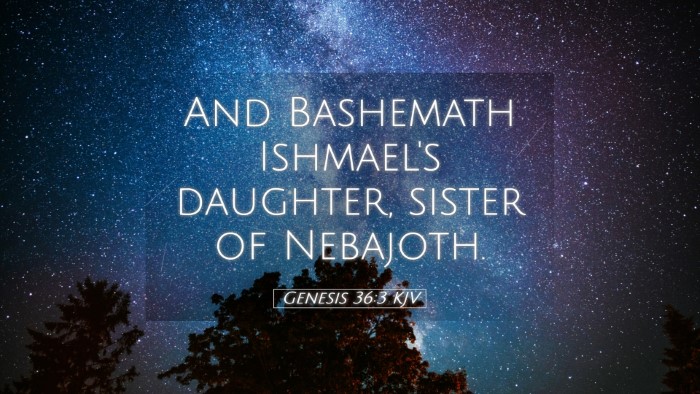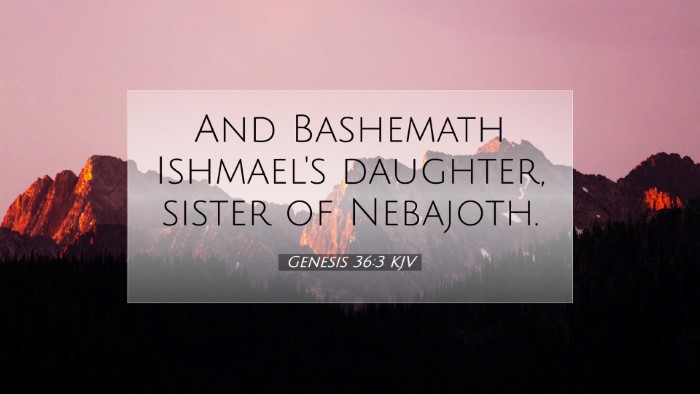Commentary on Genesis 36:3
Verse: "And Bashemath Ishmael’s daughter, sister of Nebajoth." (Genesis 36:3)
Introduction
The genealogical records provided in Genesis serve not only to trace the lineages of major biblical figures but also to unveil the historical and theological contexts in which these figures operated. Genesis 36 focuses on the descendants of Esau, which is essential in understanding the dynamics between Edomites and Israelites.
Historical Context
Esau, known as Edom, is a significant figure whose line produces numerous nations and tribes, as noted in this chapter. The marriages that Esau makes, including that to Bashemath, illustrate the interplay of familial relations and alliances that would shape the future confrontations and relationships between the Edomites and the Israelites.
Commentary Insights
1. The Significance of Bashemath
Bashemath, identified as "Ishmael’s daughter" and the "sister of Nebajoth," carries weight in this lineage. This marriage not only ties Esau to Ishmael’s descendants but signifies Esau's drift into areas influenced by culture and religions outside of the covenantal community.
Matthew Henry notes that Esau's choice to marry Bashemath demonstrates a departure from the faith of his father Isaac. Marrying into Ishmael's line indicates both a connection and a divergence from the covenant lineage God established with Abraham.
2. The Relation to Ishmael
The mention of Ishmael in relation to Esau is significant. Both figures, Ishmael and Esau, represent God's grace extended beyond the line of the covenant. Albert Barnes remarks that by marrying Ishmael's daughter, Esau's lineage receives acknowledgment among other nations and tribes, demonstrating God's providence in the larger picture of redemptive history.
3. Familial Alliances
Theological implications arise from Esau's marriage choices. Adam Clarke points out that alliances, such as those formed through marriage, often reveal personal and community priorities. Esau's actions can be seen as setting the stage for future conflicts with Jacob's descendants, thus emphasizing the transformative power of familial decisions in the unfolding narrative of the Bible.
4. Edom and Israel Dynamics
As the narrative progresses, the relationship between Edom and Israel becomes complex. Matthew Henry explains that Esau's marital decisions played a part in establishing Edom as a separate entity from Israel. These connections are critical in understanding the tension that later arises between these two nations, particularly during the exodus and conquest periods.
5. Theological Reflections
From a theological viewpoint, the union of Esau and Bashemath evokes reflection on God's sovereignty and the multi-faceted nature of His plans. Both Barnes and Clarke underscore that, although the events can be seen as departures from God’s ideal, they fall within His overarching plan for humanity.
Practical Applications
The genealogical accounts in Genesis 36, particularly this verse, invite contemporary readers to consider the implications of relational choices made within family structures. Pastors may find in this passage a reminder of the necessity for spiritual vigilance when engaging in relationships outside the faith community.
- Understanding the Past: Recognizing how historical choices influence current relationships and conflicts.
- Guarding Relationships: Encouraging careful consideration of alliances and marriages.
- God’s Sovereignty: Trusting in God’s control over human decisions, even those that seem contrary to His plans.
Conclusion
Genesis 36:3 introduces us to significant relationships in biblical history that reflect broader themes of familial allegiance, divine sovereignty, and the complexities of human relationships. The life choices of Esau and the implications of his union with Bashemath set the stage for understanding the unfolding conflict between Edom and Israel, providing both historical insight and theological depth for scholars and theologians alike.


